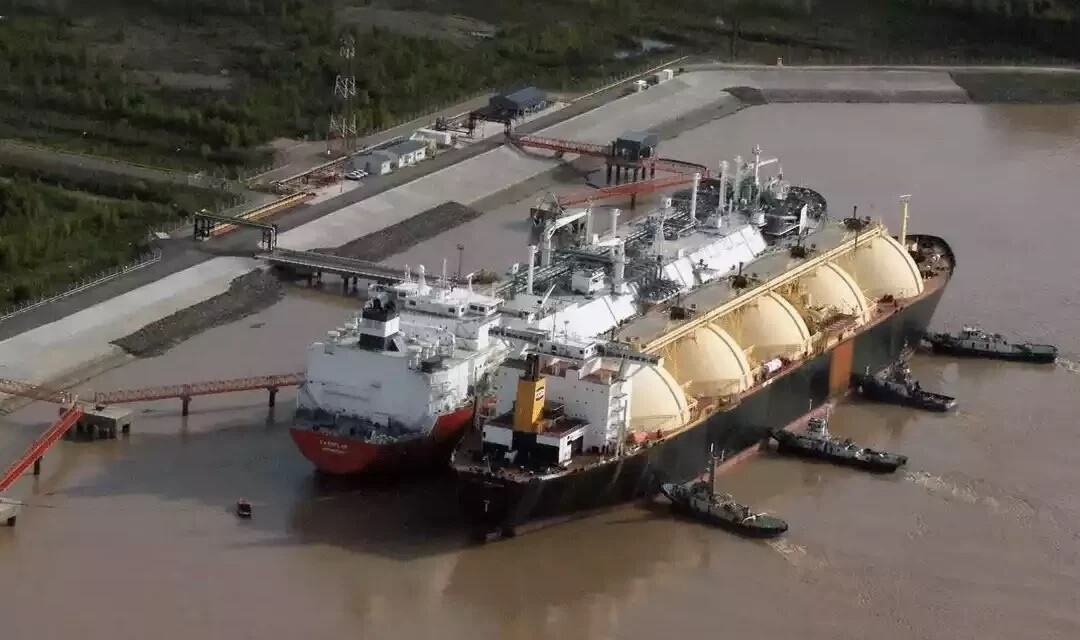
BUENOS AIRES, Argentina – Market experts are increasingly analyzing that Argentina is in a favorable position to emerge as a liquefied natural gas (LNG) exporter. This analysis stems from the combination of vast shale gas reserves and strong government support for energy policies, suggesting Argentina has the potential to become a significant player in the global energy market.
The Potential of the Vaca Muerta Shale Formation
The primary reason for Argentina's growing prominence as an LNG exporter is the Vaca Muerta shale formation, located in the Patagonia region. Boasting the world's second-largest shale gas reserves, this enormous field is considered a key resource that could enable Argentina's energy independence and its transformation into a major energy exporter. According to the U.S. Energy Information Administration (EIA), the Vaca Muerta shale formation is estimated to hold approximately 802 trillion cubic feet of technically recoverable shale gas and 16 billion barrels of shale oil. This staggering volume is enough to supply Argentina with natural gas for decades with a significant surplus.
Nevertheless, the development of Vaca Muerta has historically progressed slowly due to high initial investment costs, the complexities of infrastructure construction, and Argentina's unstable macroeconomic conditions. However, with growing concerns about global energy security and European nations seeking to reduce their reliance on Russian gas, international interest in Argentina's shale gas has surged once again.
Strong Government Support and Investment Attraction Efforts
The current Argentine government is accelerating Vaca Muerta's development and pushing forward with infrastructure construction for LNG exports. President Javier Milei's pro-market economic policies are positively influencing foreign investment attraction, and the government is encouraging participation from global energy companies by deregulating the energy sector and offering investment incentives.
In particular, the construction of LNG export terminals is a central component of Argentina's energy transition strategy. While small-scale floating LNG terminals are currently operational in Argentina, large-scale liquefaction plants and the accompanying pipeline network are essential for a full transition to an export nation. State-owned energy company YPF and several other firms are pursuing LNG liquefaction plant construction projects, which are expected to bring in tens of billions of dollars in investment. For instance, YPF and Malaysia's state-owned oil company Petronas are jointly advancing a $10 billion megaproject to produce gas from Vaca Muerta and export it as LNG.
Furthermore, the government is focusing on expanding the gas pipeline network. Specifically, the "Néstor Kirchner Gas Pipeline" is critical infrastructure for efficiently transporting gas produced in Vaca Muerta to major domestic consumption centers and export terminals. The completion of the second phase of this pipeline is expected to significantly increase gas transportation capacity.
Strategic Importance in the Global Energy Market
Should Argentina emerge as an LNG exporter, it could significantly impact the global energy market landscape. The current LNG market has seen an increased emphasis on diversifying supply sources due to heightened energy security concerns following the Russia-Ukraine war. If Argentina enters the market as a new supplier, alongside major LNG exporters like Qatar, the United States, and Australia, it could contribute to stabilizing the global energy market and help mitigate energy price volatility.
European countries, in particular, are actively seeking new supply sources to reduce their dependence on Russian gas, and geopolitically stable Argentina could be an attractive alternative. Moreover, the continuous increase in LNG demand from Asian markets presents a significant opportunity for Argentina.
Challenges and Outlook
Despite the promising outlook, Argentina still faces challenges that need to be addressed to fully establish itself as an LNG exporter.
First, attracting substantial initial investment is crucial. LNG liquefaction plants and related infrastructure require astronomical costs, making stable foreign direct investment (FDI) vital. Argentina's past fiscal instability, high inflation, and capital control policies could deter investors, necessitating consistent pro-market policies and trust-building efforts from the government.
Second, the complex regulatory environment and labor issues also need resolution. Energy projects involve various stakeholders, including environmental regulations, conflicts with local communities, and relationships with labor unions, requiring efficient negotiation and management for smooth project execution.
Third, the volatility of the global energy market must be monitored. LNG prices can fluctuate significantly due to international affairs, changes in supply and demand, and the pace of renewable energy transition. Argentina will need to secure stable long-term export contracts and develop strategies to flexibly respond to market changes.
Nevertheless, Argentina's shale gas reserves are overwhelming, and the government's will to develop them is strong. If this potential is successfully realized, Argentina could play a significant role in the global energy market and contribute substantially to its national economic development. If the ongoing investment attraction efforts and infrastructure construction projects come to fruition, Argentina is expected to soon mark its name on the world map as a new LNG export powerhouse.
[Copyright (c) Global Economic Times. All Rights Reserved.]



























